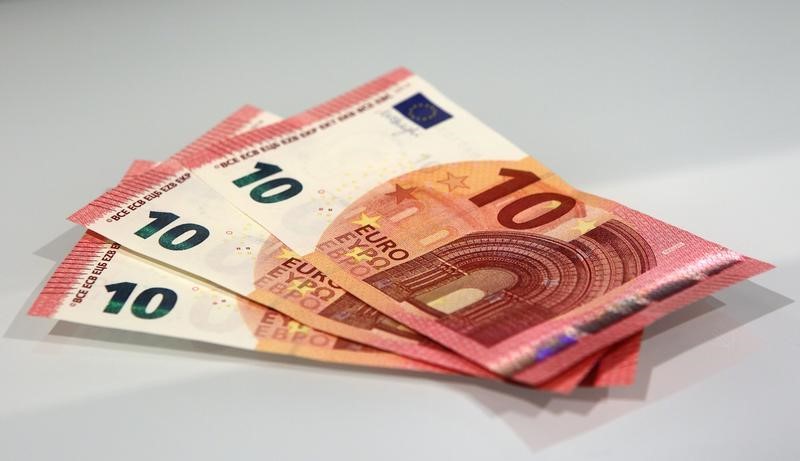By Jonathan Cable
LONDON (Reuters) - The euro's slide is not yet over because diverging monetary policies at the European Central Bank and the United States Federal Reserve will sink the currency to levels not seen since late 2003, a Reuters poll found.
Fears that cheap oil will tip the now 19-member bloc into a deflationary spiral have increased calls for the ECB to take urgent action, possibly as soon as the Governing Council's Jan. 22 meeting.
Conversely, the Fed is widely expected to begin tightening its policy later this year given robust job gains and bullish growth signs in the world's biggest economy. [FED/R]
"We have the existing disparity between ECB policy and Fed policy. Certainly quantitative easing is priced in to a large extent but not fully," said Jane Foley at Rabobank, the most accurate 12-month euro forecaster in Reuters polls last year.
The euro <EUR/USD> lost around 13 percent against the dollar last year and sank to a nine-year low of $1.184 on Wednesday amid gloomy economic data and renewed fears of a Greek exit that could bring the monetary union to its knees.
"Political risk is potentially the new factor for 2015 and not just with Greece ... the risk could be extended as we go into Spanish and Portuguese elections too," Foley said.
According to the poll of over 50 foreign exchange strategists, the euro will rally to $1.20 in a month then fall back to $1.18 in six months. But at the end of this year it will sit at $1.15, a level not seen since late 2003.
Nearly all those forecasts were taken before official data showed inflation fell more than expected to -0.2 percent in December. But already they were far weaker than in a poll last month when the respective forecasts were $1.24, $1.20 and $1.18.
Central banks themselves are growing more wary of the euro, the second-biggest reserve currency after the dollar.
The share of currency reserves in the euro held by central banks fell to its lowest in over a decade in the third quarter of 2014 at less than 23 percent, according to International Monetary Fund data.
LOOSE CABLE
Sterling (EURGBP=) will also gain ground on the euro in the year ahead, the poll predicts.
It concluded you will need 78.2 pence to get one euro in a month, 77.1p in six months and just 76.0p in a year. Last month the respective forecasts were 79.1p, 77.4p and 76.5p.
Like the Fed, the Bank of England is expected to begin raising interest rates from record lows later this year, although a recent bout of weaker British data and falling inflation have called the timing into doubt and the pound <GBP=> will struggle against the dollar. [ECILT/GB]
Cable, trading around $1.51 earlier on Wednesday, was predicted to be at $1.53 in a month, $1.52 in six and $1.51 in 12. The December poll was much more bullish about sterling with respective $1.57, $1.55 and $1.54 forecasts.
Speculators renewed their net long dollar position at the end of last year, data from the Commodity Futures Trading Commission showed, suggesting they also expect it to strengthen.
Dollar strength -- it ended 2014 with a gain of nearly 13 percent against a basket of major currencies -- will also keep weakening the Japanese yen <USD/JPY>, to 123.0 in six months and 125.0 in a year.
The yen, trading at 119.2 on Wednesday, lost over 14 percent last year and with the Bank of Japan likely to ease policy further some time after June, any strengthening this year looks unlikely.

Emerging market currencies will also stay under pressure, though they may not fall as much as last year: lower commodity prices and tighter U.S. monetary policy could already be largely priced in. [BRL/POLL] [CEEU/[POLL]